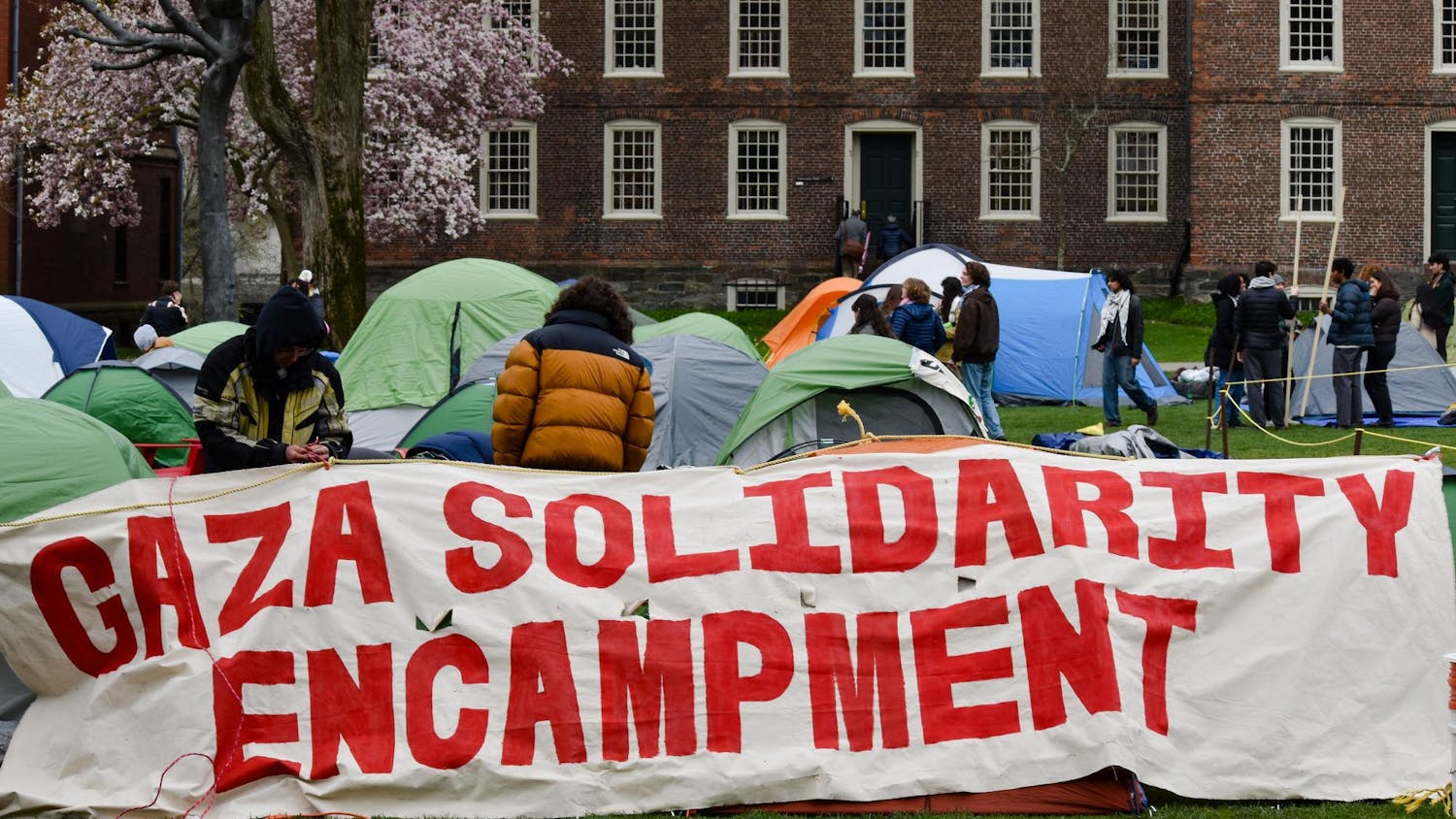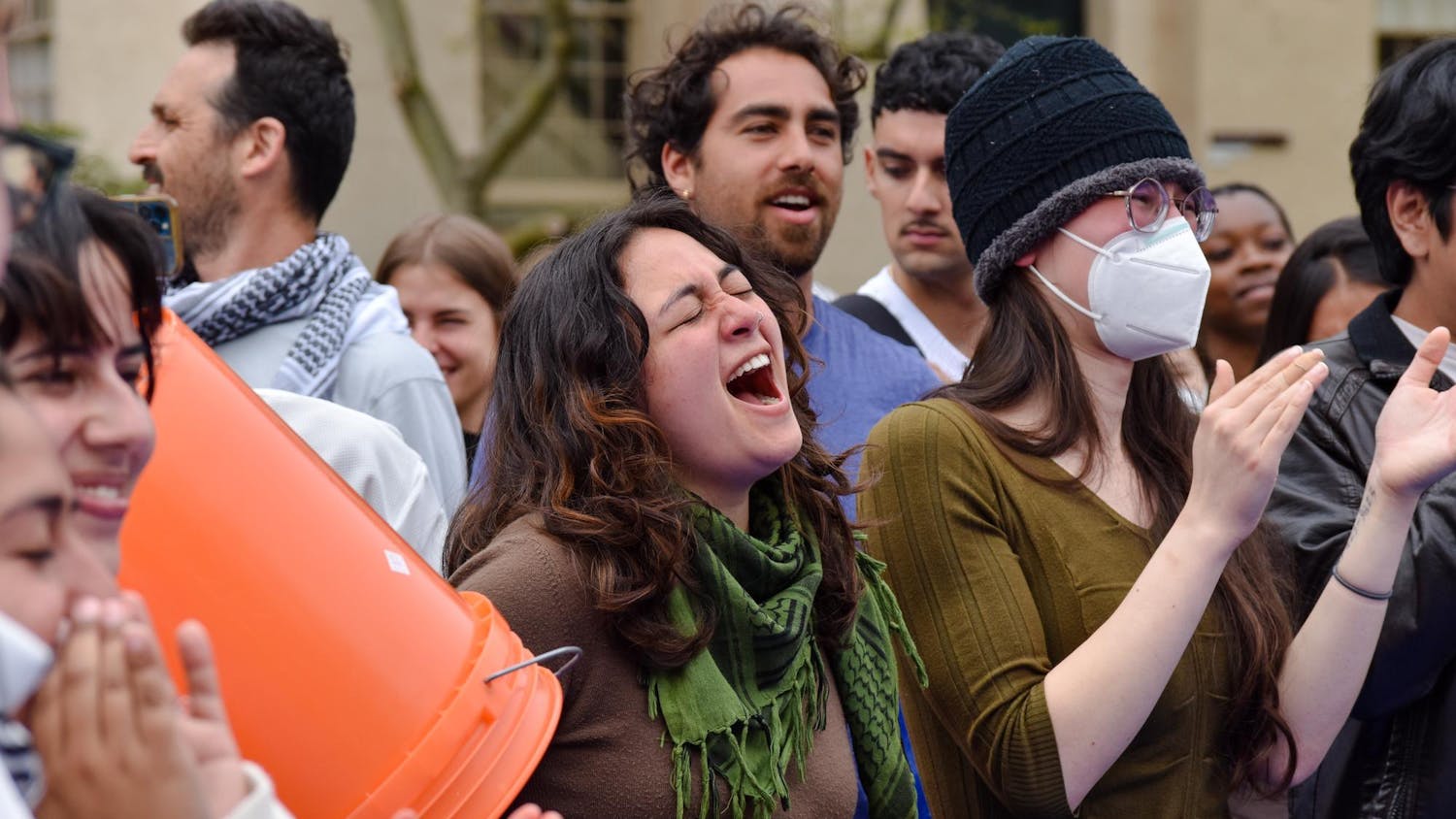Being first-generation is an “invisible identity,” said Stanley Stewart ’16.
1vyG, a University-based startup aimed at improving the first-generation college experience, is seeking to change that. Stewart, Manuel Contreras ’16 and Jessica Brown ’16 founded the group to create a lasting network of first-generation students who can continue to press their school administrations to implement policies benefiting similarly-positioned students.
Universities have a responsibility to facilitate connections among first-generation students, Stewart said.
“You can’t look at someone and be able to tell their family’s educational history,” he explained. “You’d be amazed at how many times we talk to administrators and faculty, and we find out that they are also first-gen,” Contreras added.
The team looks to discover ways that administrators and university leaders can ease the academic and social transition for first-generation students. As a minority recruitment intern, Contreras directly witnesses University attempts to attract first-generation students. He framed the question as one of responsibility and commitment. “If universities are specifically recruiting first-generation college students to their campuses, how are they creating supports and opportunities that provide equitable access to these opportunities?” he asked.
1vyG’s founders, themselves first-generation college students, cited their personal experiences as the key motivation in pursuing the project. When Contreras arrived at Brown, he encountered plentiful academic resources for the first time but was unable to truly explain the University to his parents over the phone. He felt “between two worlds,” he said.
“To get here, there’s very much an ‘I did it on my own’ mentality, which you’re used to because it’s always worked,” Contreras said. Upon exposure to Brown’s abundant resources “it takes an entire rethink into how you approach education for you to even think about using these resources,” he added.
It took Brown until the end of her first year, when she had a conversation with other first-generation friends about struggles with adjusting to the resources and social life at the University, to realize that her experience was a shared one.
The 1vyG team has outlined a strategy to help first-generation students better succeed at elite universities. The strategy focuses on connecting first-generation students to one another so they can explore their own identities and become more motivated to affect change.
Discussing shared experiences will better equip first-generation students to handle feelings of isolation, embarrassment or confusion, Stewart said. 1vyG wants “to frame being first-gen, not as so much an issue, but as a holistic identity which brings hardship, it brings pains, but it also brings experiences, power and beauty,” Contreras said.
The team’s initial aspiration was to host a conference of first-generation students. Soon after, their efforts expanded to advocating for policy change and launching a network of first-generation student groups at the eight Ivy League schools.
In January, Brown, Contreras and Stewart received the Swearer Center for Public Service’s Social Innovation Fellowship. Established for students with a creative, entrepreneurial idea for affecting social change, the fellowship provided the team with a year of funding and mentorship. Energized by the fellowship, the group spent this past summer bolstering its online presence. Offline, the team worked to broaden its vision, developing fundraising skills and making contact with all the other Ivy League schools.
In addition to providing guidance, Swearer Center mentors helped 1vyG connect to organizations with similar goals, such as Michelle Obama’s Reach Higher, an initiative that seeks to encourage all students to complete an education past the high school level.
1vyG is also planning to host the 1vyG Conference at Brown in February.
Results of 1vyG’s work are visible. Already, the University is changing the way it advises first-generation students. Recently, the first-generation program was moved from the Third World Center into the offices of Student Life and the Dean of the College, Contreras said. This was an important move because one’s identity as an ethnic minority cannot be conflated with one’s identity as a first-generation college student, he continued, and because there is so much racial and economic diversity within the first-generation community.
In addition to relocating first-generation programming, the University will sponsor a dinner for first-generation students and various faculty members at the end of the month. The team hopes this event will enable students to find mentors and speak about their common experiences.
A group called “First-Gens at Brown” will also take shape in the coming weeks, with the student executive board solidifying soon.
Brown expressed gratitude for the understanding and support the University has shown 1vyG thus far.
The 1vyG founders also encouraged administrators to consider the systematic inadequacies in the education system that lead to the academic struggles many first-generation students face at their educational institutions.
“We often hold up a lot of first-generation students who’ve gone through a lot of struggles to make it to a place like this as an accomplishment, and it definitely is an accomplishment, but it’s a personal accomplishment,” Stewart said. “The other side of that coin is that it’s a systematic failure that that student had to struggle that much to get to a place like this.”
While the group has yet to expand outside the Ivy League, the fact that 89 percent of low-income, first-generation students nationwide do not graduate college within six years remains a motivation to reexamine and improve the American education system as a whole, they said.
“I don’t think that 89 percent is an accident, or is the result of mismanaged time or any sort of personal failures. There’s something larger going on that we have to think about in education,” Stewart said.
Amelia Friedman ’14, Stewart’s mentor and former teaching assistant in PPAI 1701Q: “Leading Social Ventures: Social Entrepreneurship in Action,” marvels at the progress the group has made in six months. She “found the project to be incredibly confusing” when she first heard of it, she said. “Now if you ask them where they’re going to be in five, 10 years, the story that they’re going to tell … is a lot different than what they would’ve told you a few months ago,” she added.
“The team is incredibly impressive and committed in improving the experience of first-gens,” said Alan Harlam, director of innovation and social entrepreneurship at the Swearer Center.
ADVERTISEMENT




